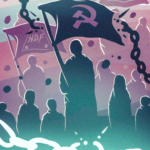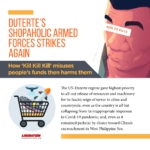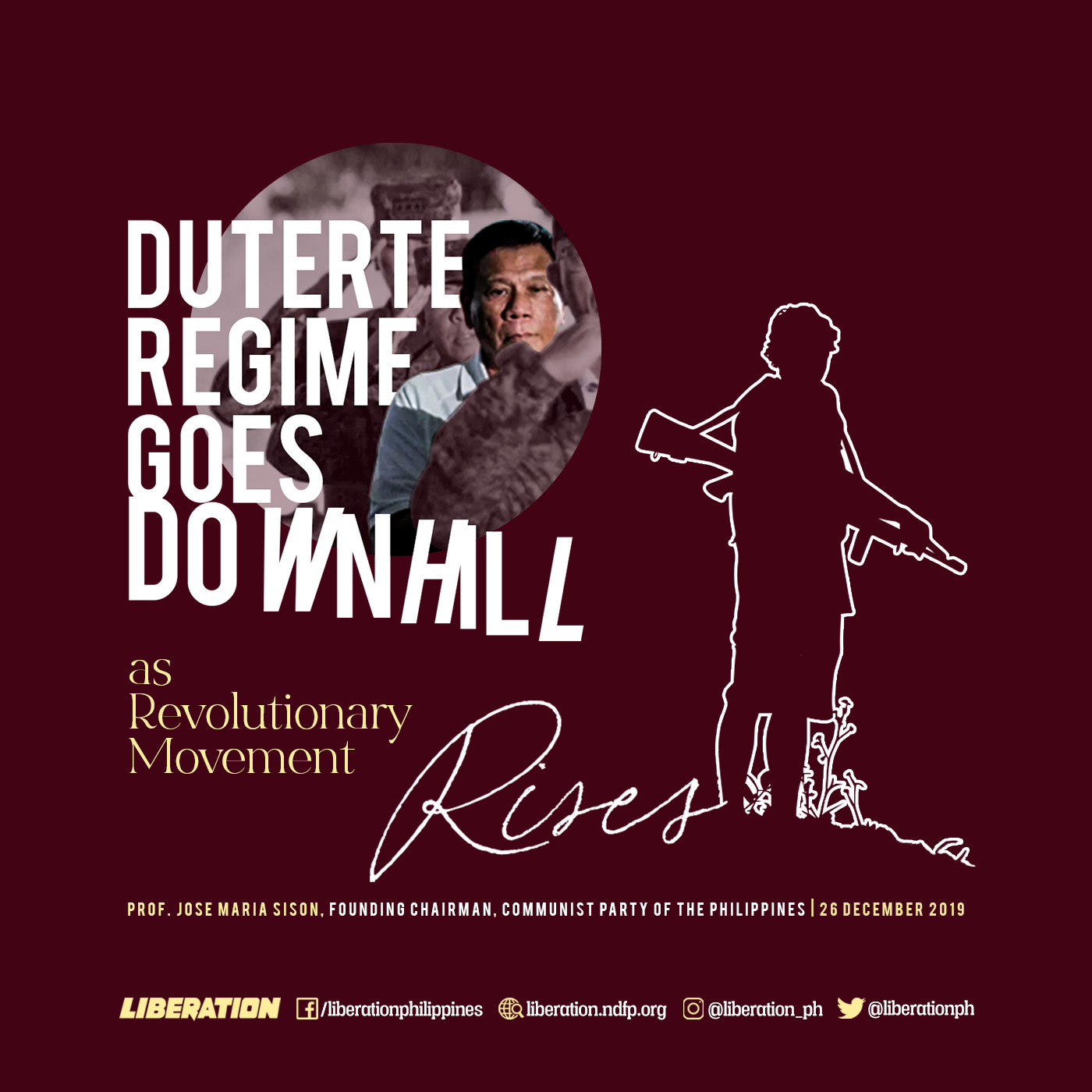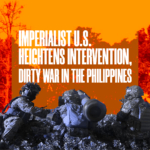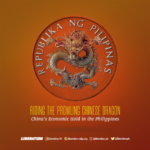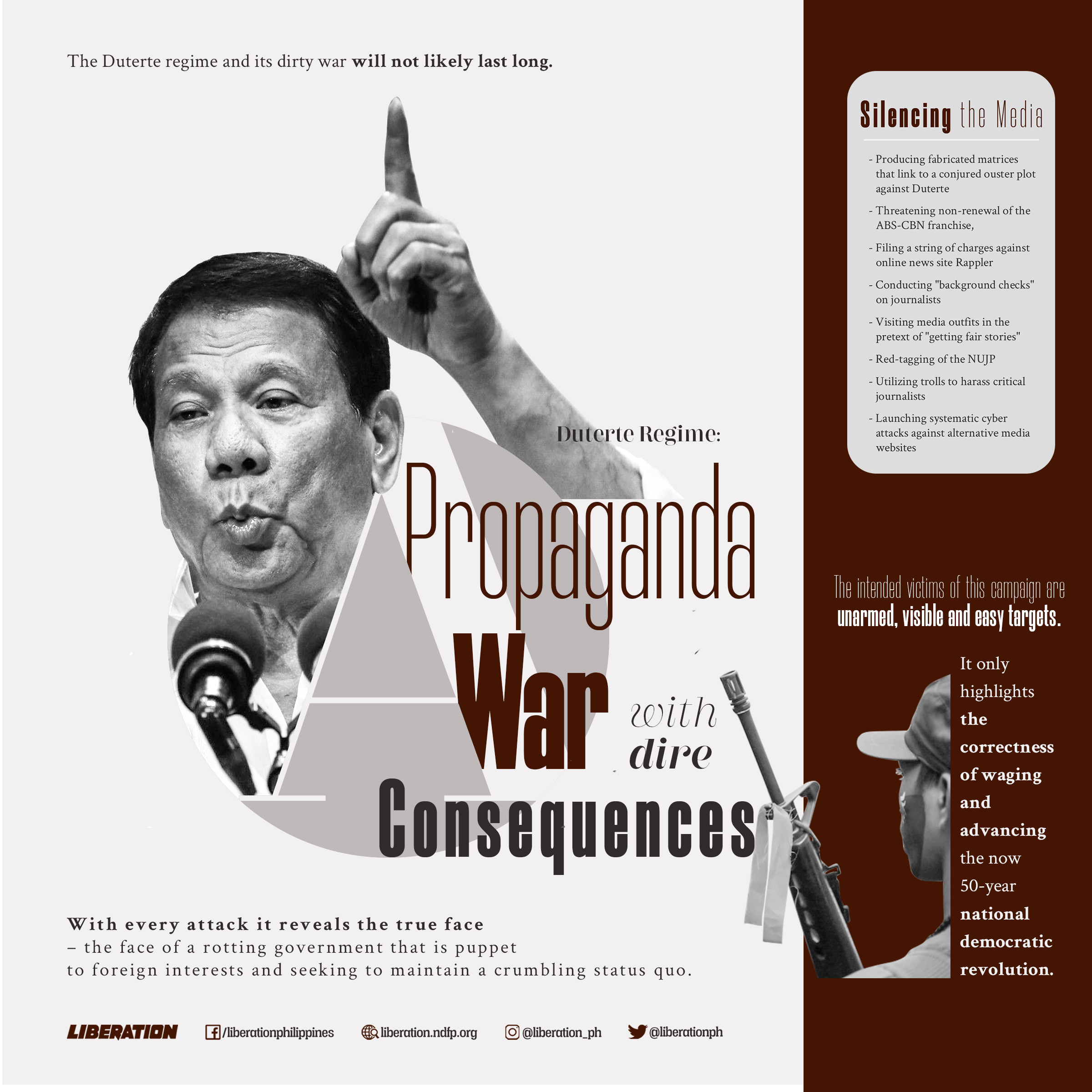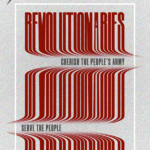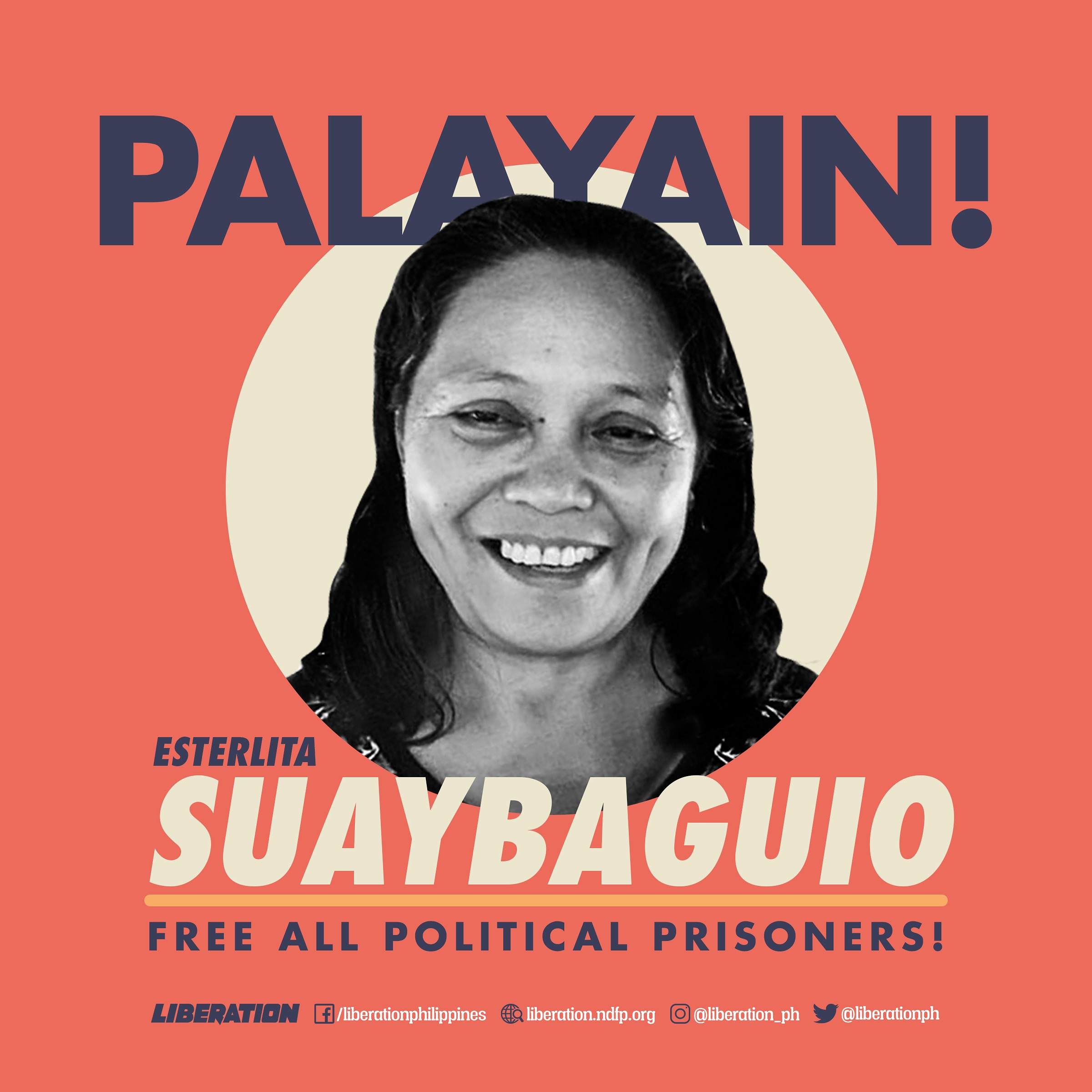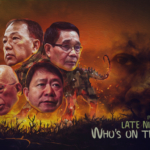PEACE HAWKS LIE, Here’s Why
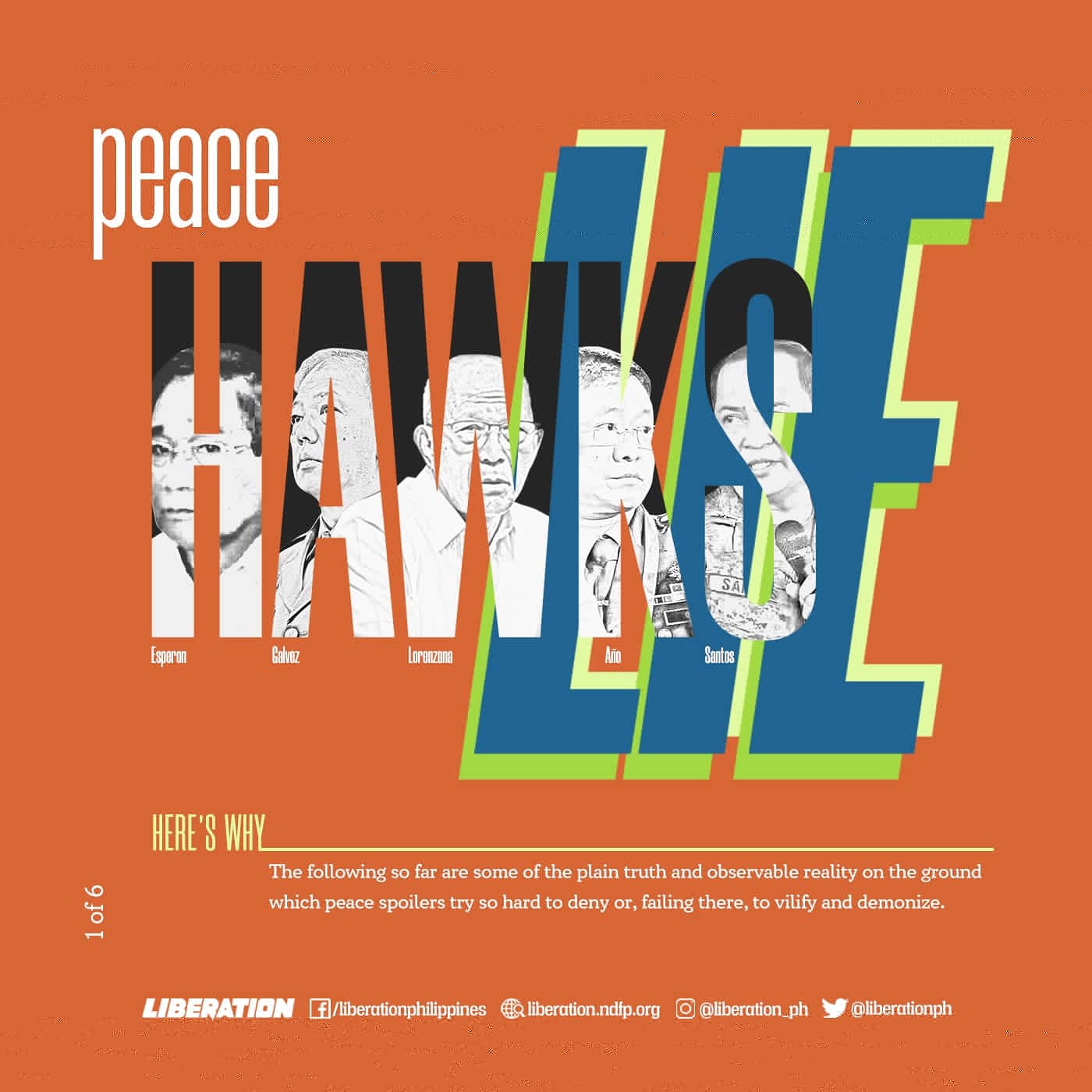
by Pinky Ang
The on again off again peace negotiations—scuttled by the Duterte regime—can still be saved if the people correct and debunk all the misinformation being lobbed against it by the militarists, the peace spoilers, and hawkish officials of the Duterte regime.
The following so far are some of the plain truth and observable reality on the ground which peace spoilers try so hard to deny or, failing there, to vilify and demonize. Feel free to add.
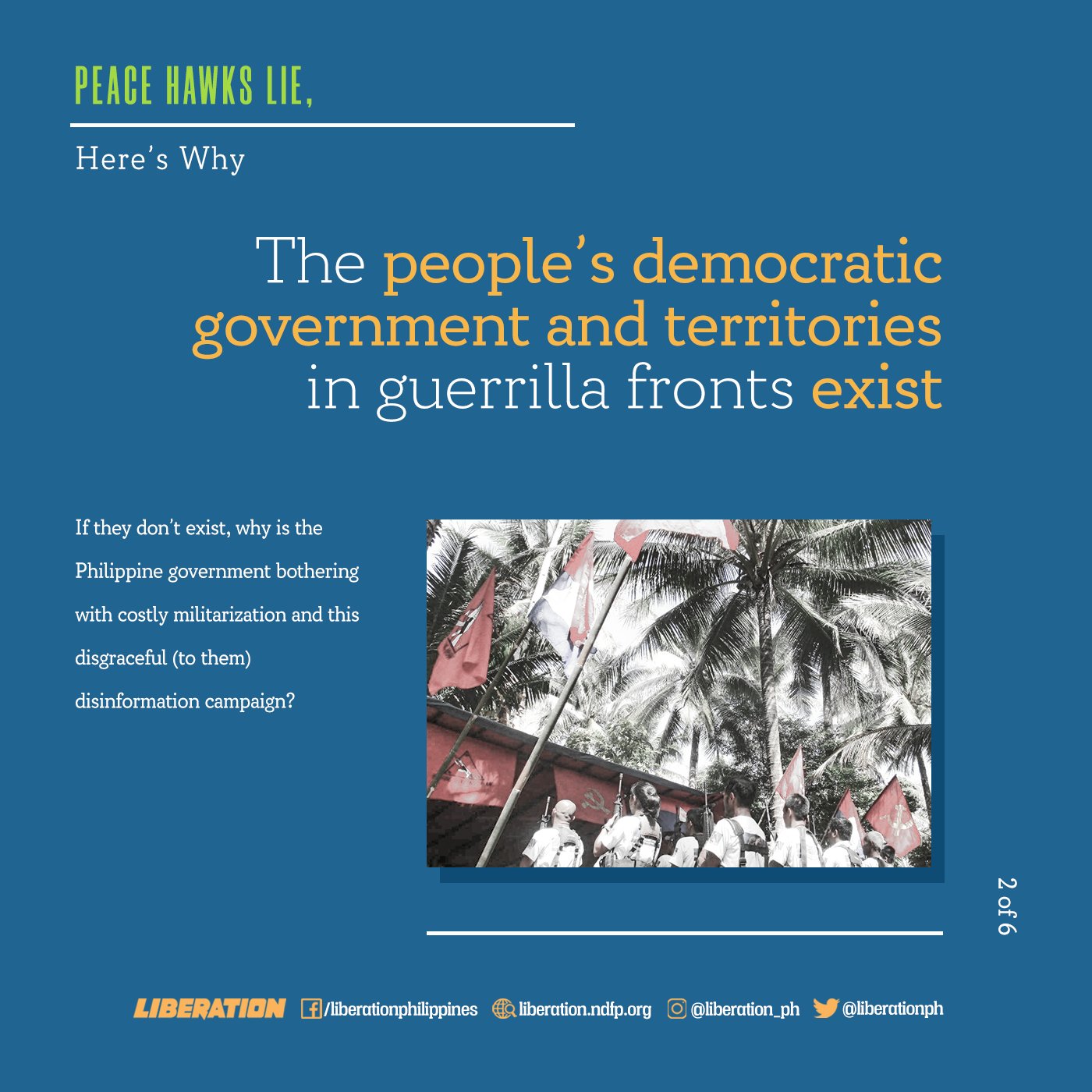
THE PEOPLE’S DEMOCRATIC GOVERNMENT AND TERRITORIES IN GUERRILLA FRONTS EXIST
The guerrilla fronts have expanded to about a hundred amid the continuing intensified militarization topped by increased use of civilian bureaucracy for waging war against the people. The simplest response to government or militarist denial of the existence of the people’s democratic government is: if they don’t exist, why is the Philippine government bothering with costly militarization and this disgraceful (to them) disinformation campaign?
The people’s democratic government continues to advance land reform, revolutionary justice, defense of human and natural resources for national industrialization. The government of the Republic of the Philippines and its mercenary troops know and confirm this every time they present their faked or forced surrenderers (mostly civilian farmers or government soldier pretending to be a rebel); when they order local government to declare the Communist Party and the New People’s Army as persona non grata; or when they rail against revolutionary taxation or village militias flexing muscles to defend themselves.
The Duterte regime and the militarists precisely know the existence of guerrilla fronts and people’s democratic government as they vainly try to trap them in localized peace talks. They have long failed to appreciate that the rebels aren’t as corruptible as the AFP or PNP generals. Or that the revolutionary movement continues to expand despite or because of sufferings the military and the plunderers inflict on the people.
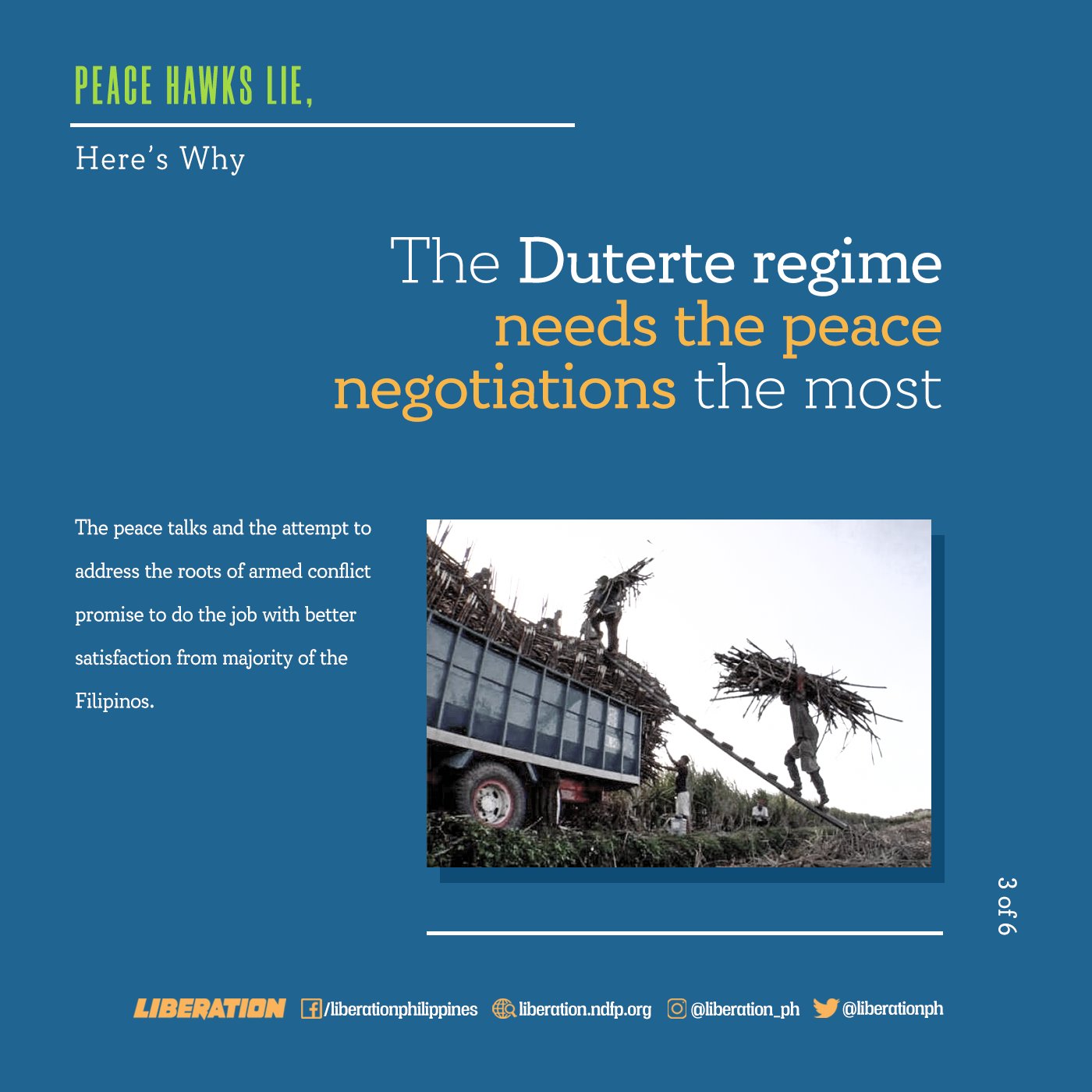
THE FILIPINO PEOPLE AND DUTERTE NEED THE PEACE NEGOTIATIONS THE MOST
The Duterte regime is now weighed down by the sheer amount of blood shed because of his dirty wars against the poor. Meanwhile, no amount of magic in official statistics can hide that the economy is not as good as it projects, and that the majority of the Filipinos are worse off.
Now in his lameduck years in Malacañang, Duterte can’t fail to notice that even his highest military subordinates (Hermogenes Esperon, Jr., Delfin Lorenzana, Eduardo Año, Carlito Galvez, and Filemon Santos, Jr.) have so publicly opposed his intent to resume peace negotiations between the GRP and the NDFP. Instead of addressing the roots of the armed conflict to ready the ground for peace, these military subordinates want to continue their military rampage, as well as the drive to place the government and society under military rule through Executive Order No. 70.
Unfortunately for Duterte, he is the commander-in-chief to be tried for his accountability to war crimes, and his regime is what’s on the line for history’s reckoning. His military subordinates, meanwhile, have rampaged and butchered up till their retirement from the AFP. Yet they still failed to bring down the revolutionaries through the years, through failed deadlines, under different presidents.
It doesn’t need rocket science to grasp that the Philippine government cannot win the war by military solution alone. The peace talks and the attempt to address the roots of armed conflict promise to do the job with better satisfaction from majority of the Filipinos.
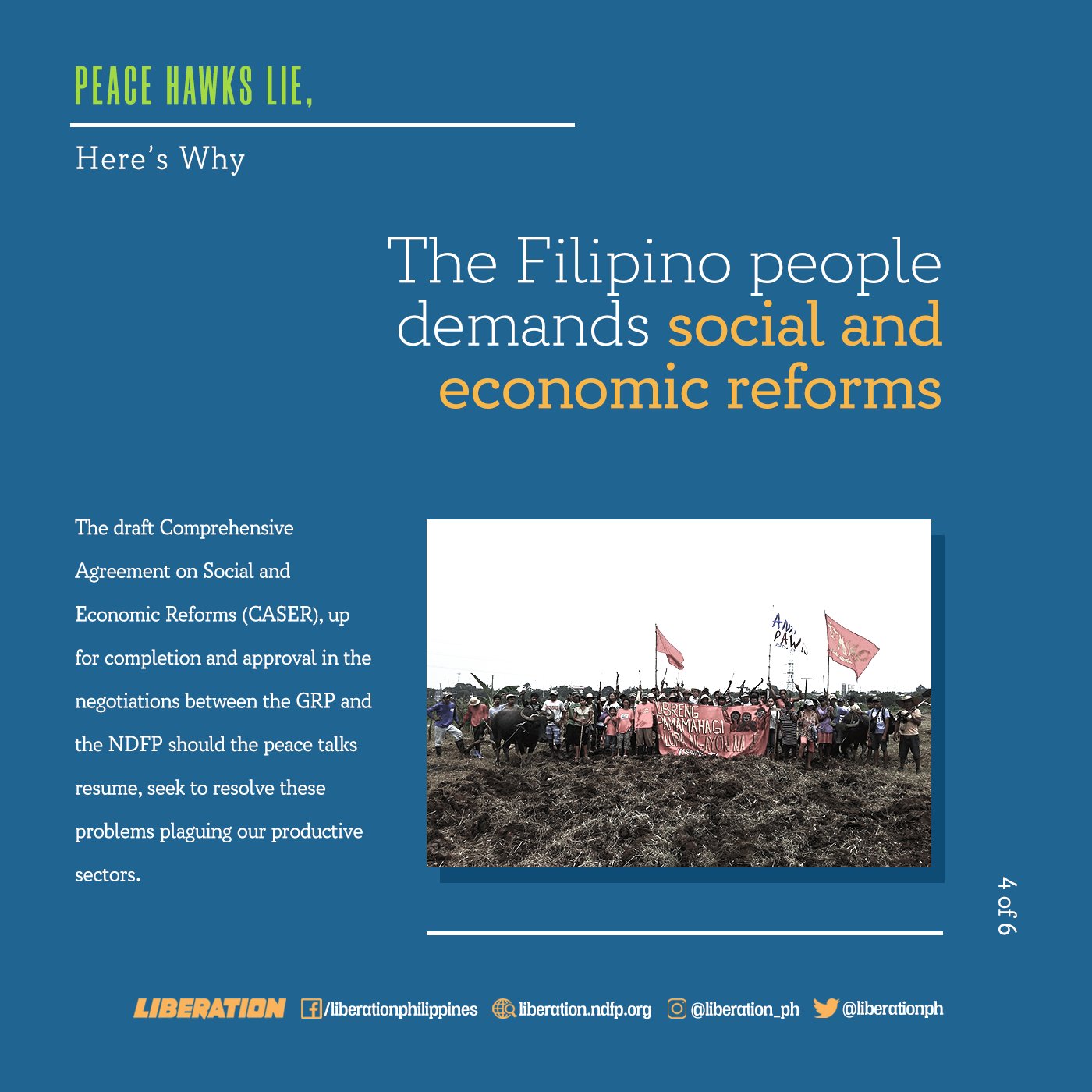
THE FILIPINO PEOPLE DEMANDS SOCIAL AND ECONOMIC REFORMS
The way Duterte’s recycled generals and hawkish officials speak, you’d think the Filipinos live already in an industrial paradise, without social injustices, without worsening unemployment, low incomes and rampant poverty. Of course these exist only in their brags and baseless beliefs. The Philippine economy stands only propped up by a bloated unproductive services sector, overseas remittances, and debt. It begs for scraps from foreign investments who take away more from the country than what they bring in.
The country’s agriculture and industry have steadily declined no thanks to the past and present government’s neoliberal policies. The draft Comprehensive Agreement on Social and Economic Reforms (CASER), up for completion and approval in the negotiations between the GRP and the NDFP should the peace talks resume, seek to resolve these problems plaguing our productive sectors.
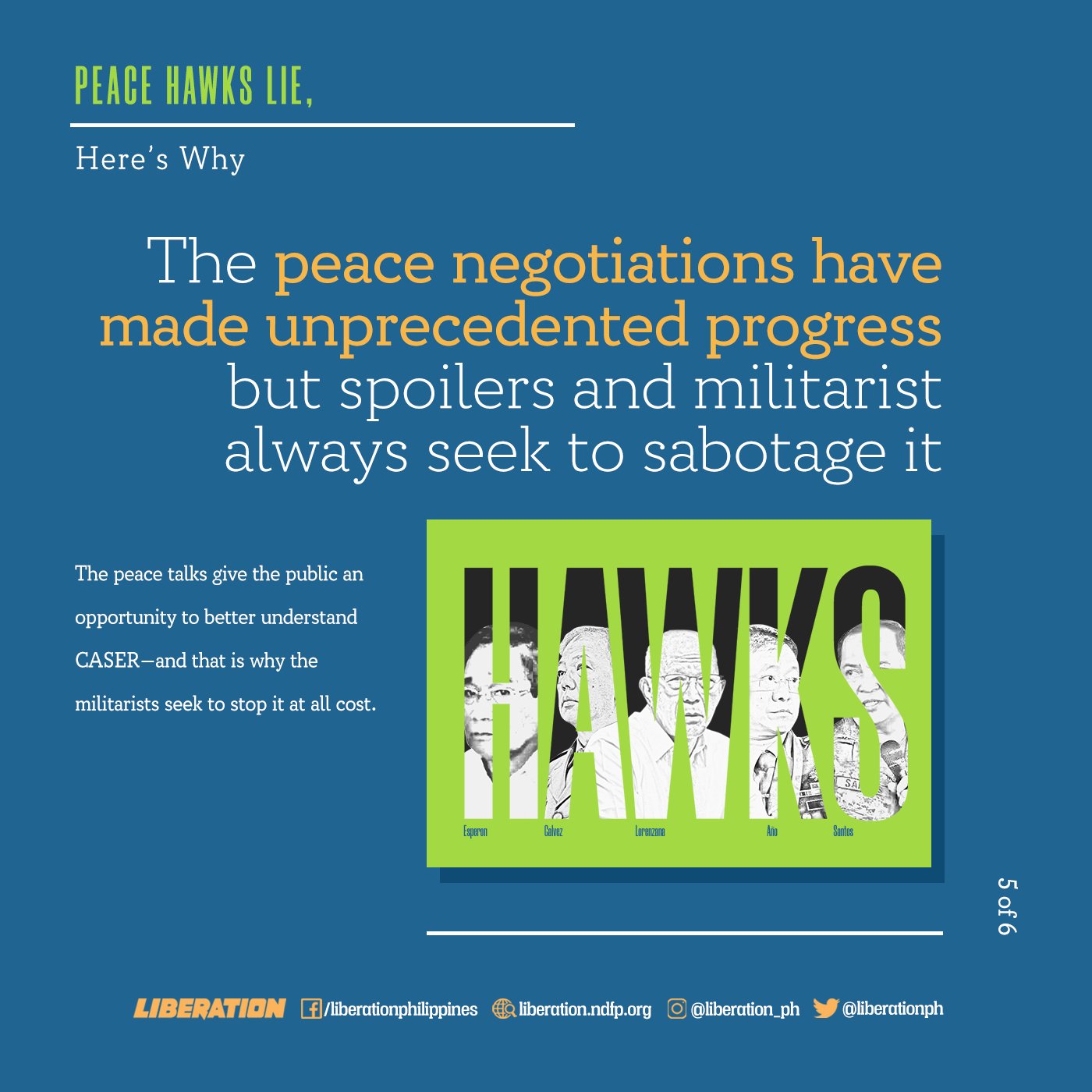
THE PEACE NEGOTIATIONS HAVE MADE UNPRECEDENTED PROGRESS BUT SPOILERS AND MILITARISTS ALWAYS SEEK TO SABOTAGE IT
The peace talks that started in 2016 have progressed in fleshing out the CASER, the meat of the peace negotiations. It used to exist as two different drafts of the negotiating panels. Before talks were halted in 2018, the four formal rounds of peace talks abroad and seven meetings in the Philippines had produced a common outline and substantial drafts on two of the most important sections of CASER: Agrarian Reform and Rural Development (ARRD) and National Industrialization and Economic Development (NIED). These two alone can give vast benefits for tens of millions of Filipinos and the cause of national development.
The peace talks give the public an opportunity to better understand CASER—and that is why the militarists seek to stop it at all cost. They will be thoroughly exposed not only as peace saboteurs but as agents of enemies of the Filipino people.
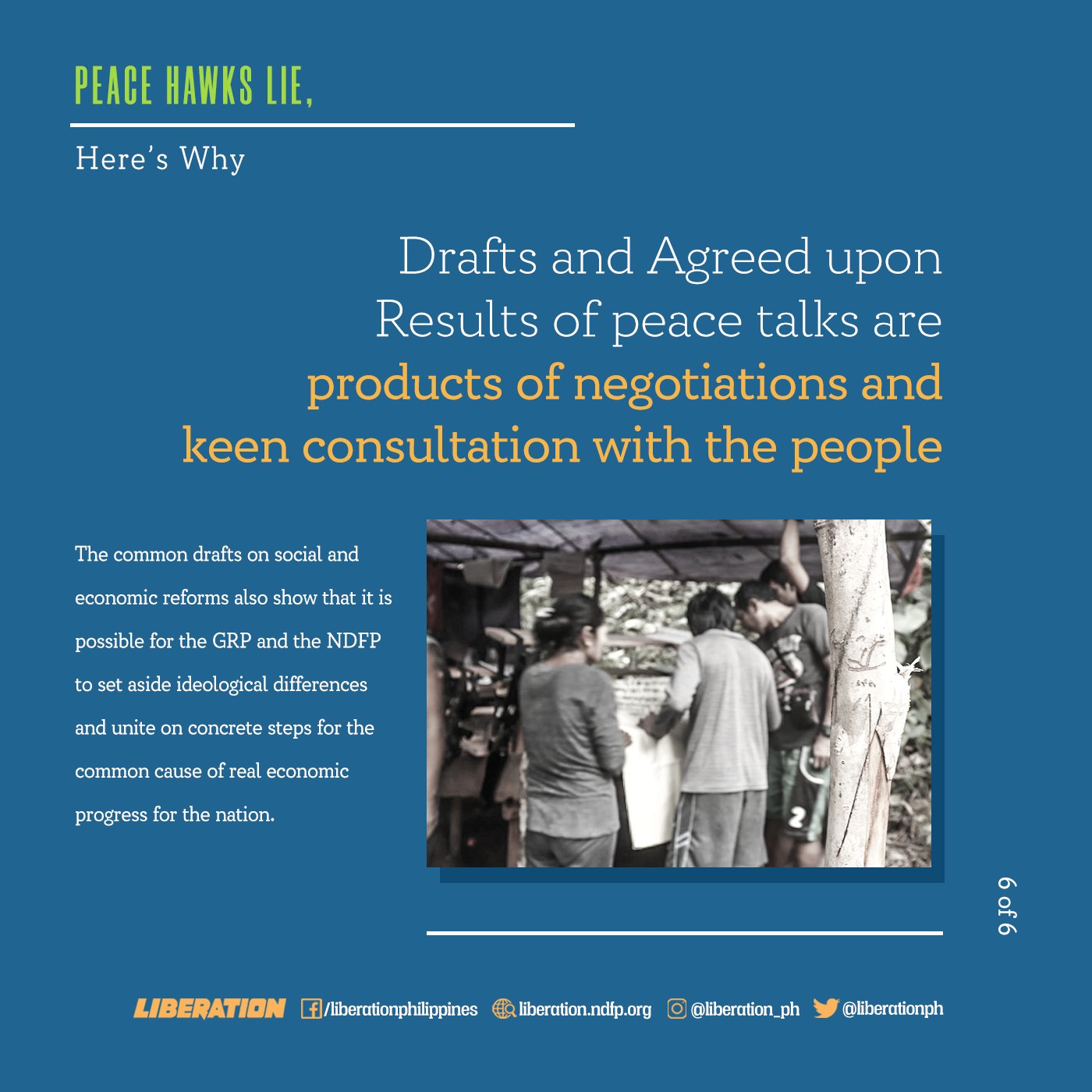
DRAFTS AND AGREED UPON RESULTS OF PEACE TALKS ARE PRODUCTS OF NEGOTIATIONS AND KEEN CONSULTATIONS WITH THE PEOPLE
Whatever common drafts have been mutually agreed upon and prepared by the negotiating parties and their working groups, these were discussed and to be approved by the NDFP and GRP negotiating panels. These are no secret nor unilateral impositions—things the militarists have been known of hatching up. With regard to the NDFP proposals, these are reflection not only of the people’s desire but of the developments in the guerrilla zones. The drafts were widely disseminated and still being disseminated and discussed in guerrilla zones; and also being updated as the years go by.
The common drafts on social and economic reforms also show that it is possible for the GRP and the NDFP to set aside ideological differences and unite on concrete steps for the common cause of real economic progress for the nation.
With the people’s resolve to push for just and lasting peace, the militarists and peace spoilers, who have failed so spectacularly at bringing about peace, will not succeed at sabotaging again the peace negotiations. ###
#ResumeTalks
#SignCASER
#JustPeace
—–
VISIT and FOLLOW
Website: https://liberation.ndfp.info
Facebook: https://fb.com/liberationphilippines
Twitter: https://twitter.com/liberationph
Instagram: https://instagram.com/liberation_ph

